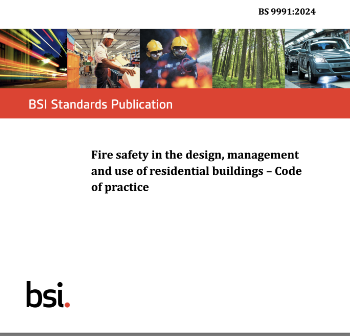Excepted risk
Insurance provides third-party protection against risks. Risks on construction projects can be significant, and so insurance is very common, providing protection both for the insured, and for the party to whom the insured has a liability.
Many standard forms of construction contract include a requirement for insurance to be taken out by the parties to the contract. Policies may be taken out by the contractor or by the client depending on the form of contract and the options selected, but they will generally be in the form of a ‘joint names policy’ in the names of both the contractor and the client. This gives both parties their own rights to claim against the insurer. Other parties, such as funders may also be added as a joint name.
Insurance policies may cover all risks, or may be restricted to certain ‘specified perils.’ However, in either case, there may be ‘excepted risks’, for which insurance is not required (because it will usually be unobtainable).
Excepted risks might include:
- The use or occupation of the works by the employer, its agents, servants or contractors.
- Any fault, defect, error or omission in the design of the works (other than design provided by the contractor).
- Riot, war, invasion, act of foreign enemies or hostilities.
- Civil war, rebellion, revolution, insurrection or military or usurped power (not including terrorism).
- Radiation or contamination by radioactivity.
- Pressure waves caused by aircraft or other aerial devices travelling at sonic or supersonic speeds.
The cost of rectifying damage caused by such risks is generally borne by the employer, although there is usually provision for the apportionment of rectification costs where the cause is contributed to by both an excepted risk and one for which the contractor is responsible.
[edit] Related articles on Designing Buildings Wiki:
- Alternative Dispute Resolution legislation.
- Compensation event.
- Contract conditions.
- Cost reimbursable contract.
- Defect.
- Insurance.
- Joint names policy.
- Misrepresentation and insurance.
- Specified perils in construction contracts.
[edit] External references
- ‘Construction Insurance and UK Construction Contracts’ (2nd ed.), LEVINE, M., TER HAAR, R., Informa Law (2008)
Featured articles and news
CLC and BSR process map for HRB approvals
One of the initial outputs of their weekly BSR meetings.
Building Safety Levy technical consultation response
Details of the planned levy now due in 2026.
Great British Energy install solar on school and NHS sites
200 schools and 200 NHS sites to get solar systems, as first project of the newly formed government initiative.
600 million for 60,000 more skilled construction workers
Announced by Treasury ahead of the Spring Statement.
The restoration of the novelist’s birthplace in Eastwood.
Life Critical Fire Safety External Wall System LCFS EWS
Breaking down what is meant by this now often used term.
PAC report on the Remediation of Dangerous Cladding
Recommendations on workforce, transparency, support, insurance, funding, fraud and mismanagement.
New towns, expanded settlements and housing delivery
Modular inquiry asks if new towns and expanded settlements are an effective means of delivering housing.
Building Engineering Business Survey Q1 2025
Survey shows growth remains flat as skill shortages and volatile pricing persist.
Construction contract awards remain buoyant
Infrastructure up but residential struggles.
Home builders call for suspension of Building Safety Levy
HBF with over 100 home builders write to the Chancellor.
CIOB Apprentice of the Year 2024/2025
CIOB names James Monk a quantity surveyor from Cambridge as the winner.
Warm Homes Plan and existing energy bill support policies
Breaking down what existing policies are and what they do.
Treasury responds to sector submission on Warm Homes
Trade associations call on Government to make good on manifesto pledge for the upgrading of 5 million homes.
A tour through Robotic Installation Systems for Elevators, Innovation Labs, MetaCore and PORT tech.
A dynamic brand built for impact stitched into BSRIA’s building fabric.
BS 9991:2024 and the recently published CLC advisory note
Fire safety in the design, management and use of residential buildings. Code of practice.























